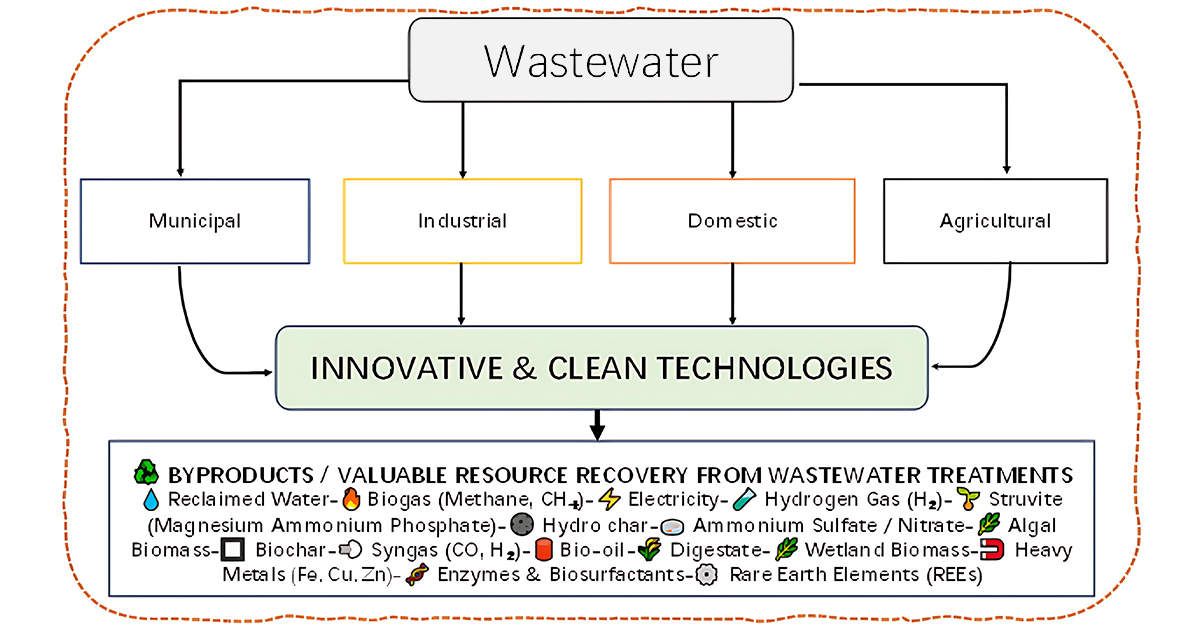Clean Technologies and Innovative Approaches for Sustainable Wastewater Treatment
A special issue of Sustainability (ISSN 2071-1050). This special issue belongs to the section "Pollution Prevention, Mitigation and Sustainability".
Deadline for manuscript submissions: 31 May 2026 | Viewed by 1824

Special Issue Editors
Interests: anaerobic digestion and resource recovery; waste water; membrane separation and desalination; carbon-neutral wastewater treatment; anammox technologies
Interests: waste; wastewater; anaerobic digestion; pyrolysis; sustainability; circular economy
Interests: wastewater treatment; anaerobic digestion; circular bioeconomy; energy efficiency in wastewater treatment plants; resource recovery from waste through fermentation, dewatering, and pyrolysis
Special Issue Information
Dear Colleagues,
This Special Issue aims to explore the latest advancements in clean and sustainable technologies for wastewater treatment, addressing pressing environmental challenges and supporting global efforts toward resource efficiency, pollution mitigation, and water reuse. As the demand for high-performance and eco-efficient treatment systems grows, it is imperative to develop and implement innovative solutions that go beyond conventional approaches.
We encourage submissions that present technological innovations, integrated treatment systems, and multidisciplinary strategies to improve the efficiency, sustainability, and scalability of wastewater treatment processes. This includes but is not limited to biological, chemical, physical, and hybrid treatment technologies designed to minimize environmental impact, enhance energy and resource recovery, and comply with stringent discharge regulations.
Areas of particular interest include the development of next-generation treatment technologies (e.g., advanced oxidation, membrane filtration, electrochemical processes, and anaerobic digestion); integrated and modular systems for decentralized or industrial wastewater treatment; resource and energy recovery from wastewater (e.g., biogas, nutrients, and water reuse); automation, process control, and digital tools (e.g., AI, machine learning, and IoT) in smart wastewater treatment; sustainability assessment, including life cycle analysis, carbon footprint, and techno-economic evaluations; and treatment of emerging contaminants, such as pharmaceuticals, microplastics, and PFAS, and thermochemical processes/technologies, among others.
We welcome original research articles, technical reviews, and case studies that provide new insights into clean and sustainable wastewater treatment solutions.
Dr. Hui Gong
Dr. Abdulmoseen Segun Giwa
Dr. Emmanuel Alepu Odey
Guest Editors
Manuscript Submission Information
Manuscripts should be submitted online at www.mdpi.com by registering and logging in to this website. Once you are registered, click here to go to the submission form. Manuscripts can be submitted until the deadline. All submissions that pass pre-check are peer-reviewed. Accepted papers will be published continuously in the journal (as soon as accepted) and will be listed together on the special issue website. Research articles, review articles as well as short communications are invited. For planned papers, a title and short abstract (about 100 words) can be sent to the Editorial Office for announcement on this website.
Submitted manuscripts should not have been published previously, nor be under consideration for publication elsewhere (except conference proceedings papers). All manuscripts are thoroughly refereed through a single-blind peer-review process. A guide for authors and other relevant information for submission of manuscripts is available on the Instructions for Authors page. Sustainability is an international peer-reviewed open access semimonthly journal published by MDPI.
Please visit the Instructions for Authors page before submitting a manuscript. The Article Processing Charge (APC) for publication in this open access journal is 2400 CHF (Swiss Francs). Submitted papers should be well formatted and use good English. Authors may use MDPI's English editing service prior to publication or during author revisions.
Keywords
- wastewater treatment
- clean technologies
- sustainable water management
- resource recovery
- advanced oxidation processes
- membrane filtration
- electrochemical treatment
- anaerobic digestion
- decentralized systems
- energy efficiency
- emerging contaminants
- circular economy
- life cycle assessment
- smart water systems
- hybrid treatment technologies
- integrated technologies
Benefits of Publishing in a Special Issue
- Ease of navigation: Grouping papers by topic helps scholars navigate broad scope journals more efficiently.
- Greater discoverability: Special Issues support the reach and impact of scientific research. Articles in Special Issues are more discoverable and cited more frequently.
- Expansion of research network: Special Issues facilitate connections among authors, fostering scientific collaborations.
- External promotion: Articles in Special Issues are often promoted through the journal's social media, increasing their visibility.
- Reprint: MDPI Books provides the opportunity to republish successful Special Issues in book format, both online and in print.
Further information on MDPI's Special Issue policies can be found here.







